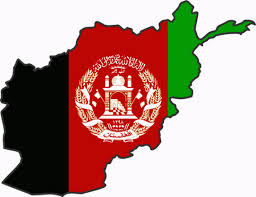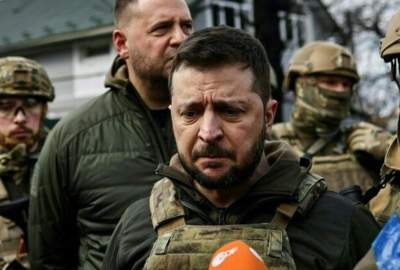Release of Mullah Abdul Ghani Berader indicates that the Afghan political reconciliation process has gathered requisite critical mass. Hopefully, as the things progress in Afghanistan, there would be a healthy impact on the negotiation process between the TTP and government of Pakistan. The upcoming Afghan presidential elections on April 5, 2014 are crucial for the reconciliation process. Key to success of electoral process is with the Afghan Taliban. Participation by the Taliban would make the elections inclusive as well as credible, and their staying away would reduce the electoral process to the level of previous presidential elections: discredited and useless in the context of national reconciliation.
A series of recent developments have made Afghanistan’s first major transfer of political power since 2001 more probable. President Karzai has ratified two parliamentary legislations that set out electoral architecture for Afghanistan and set up an “Independent Electoral Commission” to organize the elections and permit the floating of potential candidates. These developments come after a concerted push by Afghan leaders, the civil society, the United States, and members of the international community, all of whom emphasized the importance of a credible election process and urged President Karzai to pass the electoral laws which he had previously vetoed.
A credible, inclusive, and transparent electoral process will be one central ingredient in a successful political transition, but it will not be sufficient to forge a new political consensus to replace the current frayed one. Developing a stronger political consensus will demand that Afghan factional leaders negotiate and strategize over the post 2014 probable. "There are fears that the Taliban and other insurgents will achieve success against Afghan forces once the international force is reduced substantially by late 2014," a recent US Congressional report stated. Some Afghan factions warn of civil war and are rearming and recruiting militiamen, and some elites are said to be moving their businesses and funds out of Afghanistan due to the fear of chaos and instability after the pullout, the report added.
No one is talking about whether to involve Afghan Taliban politically or not. That discussion is over. Now, the real question is in what form and under what terms and conditions will they participate in the political process and what sort of concessions and incentives should be offered for engaging them meaningfully. Analysts believe that the different ethnic groups will remain politically fragmented even after the polls, making political consolidation difficult.
Taliban leadership across the Durand Line, in an apparent prior understanding with President Karzai, has asked for release of several dozens of Taliban from Afghan jails.
Presumably, the list of detainees to be freed has the approval of Mullah Omar. President Karzai is also displaying reconciliatory overtures. Moreover, reportedly Karzai, has made a solemn pledge to launch an operation in east of Kunar and dismantle, once and for all, anti-Pakistan training camps setup by Indian intelligence outfit, RAW, duly backed and funded in dollars.
Taliban have specified their broad demands: establishment of an independent Islamic system i.e. any future system in Afghanistan should be based on Islamic Republic and not a secular system; participation of all Afghans in the emerging developments, Taliban are also accepting the reality that Afghanistan belongs to “all and not just to Pushtoons”. However, they have threatened to strongly resist if Tajik or Uzbek minority is imposed upon Pushtoon majority. Taliban have also accepted modern education system for equipping the young generation with both religious and modern studies.
America has also agreed to accept some key demands of Taliban like: release of all Taliban leaders and other prisoners, closure of notorious Guantanamo and Bagram prisons, accept Taliban as the main party of Afghanistan, lifting of UN sanctions on Taliban, end of all operations against Taliban and acceptance of a ceasefire before the start of formal talks. The leadership of Taliban has particularly demanded withdrawal of all charges against the key Taliban leaders.
In an associated development when the two-day dialogue between parliamentary committees on defence from Pakistan and Afghanistan ended in Kabul, a joint declaration said that both delegations agreed on enhancing defence cooperation along with agreeing to develop bilateral cooperation between the two countries’ armed forces and security agencies.
The declaration stated that both the parties realised that an increased cooperation will allow the two armed forces to manage their respective internal security problems in a more effective way. “It was stressed that the security establishments of Pakistan and Afghanistan should identify and isolate common threats and that there is a need to keep open, all channels of communication between the two countries.” Participants of Defence Committees’ Dialogue agreed that with the impending withdrawal of US and ISAF forces from Afghanistan, a sense of vacuum can be anticipated which can only be filled if the civil societies of the neighbouring nations are allowed a chance to reinforce along with strengthening of democratic institutions in both countries.
Pakistani delegation returned with the impression that 20,000 NATO troops are likely to stay in Afghanistan on nine military bases after 2014 and that Kabul and Washington are about to sign an agreement in this regard within the next two months. Moreover, besides the soldiers around 100,000 or so American and other foreign nationals who are engaged in various security and other related responsibilities will also stay back in Pakistan and Afghanistan. This impression seems misplaced. All western sources point towards a much smaller military footprint after 2014. Moreover, overwhelming opinion is in favour of signing the bilateral agreement with Karzai’s successor; so that the new government owns and honours any such arrangement. Insistence by the Americans to sign an agreement with Karzai could jeopardize the ongoing political process. Firstly, a majority of Afghans may not turn-up for voting, and secondly Taliban may walk away from negotiations.
According to Afghan Interior Minister Umer Daudzai, police deaths have doubled since NATO troops handed over security responsibility to local troops. According to a UN report, Afghanistan's civilian casualty toll in the first six months of 2013 jumped by 23 percent, compared to the same period last year. The report stated that the insurgency was to blame for 74 percent of all civilian casualties.
Rolf Tophoven, director of the German-based Institute for Terrorism Research & Security Policy, has recently stated that there is a large number of militants and drug lords in different parts of the country who are seeking to increase their influence by attacking Afghan security forces. "Without NATO support, Afghan troops will become incapable of dealing with these strikes," Tophoven added. This view is shared by Michael Kugelman, a South Asia expert at the Washington-based Woodrow Wilson International Center for Scholars: "Afghanistan's armed forces are afflicted by drug abuse, illiteracy, and desertion, yet they preside over one of the world's most volatile security environments, and continue to suffer from combat-related incapacities”.
Pakistan needs to prepare itself for the likely fallout of these eventualities. Talks with Pakistani elements of Taliban need to proceed ahead at a faster pace. Incident of Upper Dir is highly deplorable warranting compatible reciprocal action; but it should not become a show stopper of the political process. There are powerful interest groups which want to derail the negotiations. However, it is in the interest of Pakistan to come up with a sustainable political settlement with the Pakistani Taliban well before the end of 2014. These negotiations should be conducted in a professional way, through reliable interlocutors. While media should be kept informed about the progress, it should not be allowed to indulge in initiating parallel negotiation processes.
Publish dateMonday 23 September 2013 - 11:20
Story Code : 75206
Source : Afghan Voice Agency (AVA), International Service
avapress.com/vdcb05bz.rhbsgpe4ur.html
Top hits







